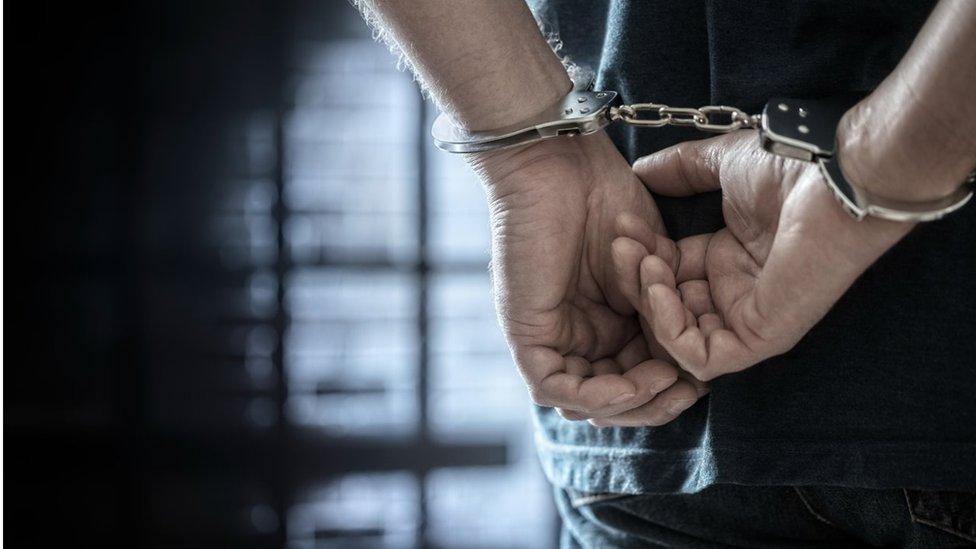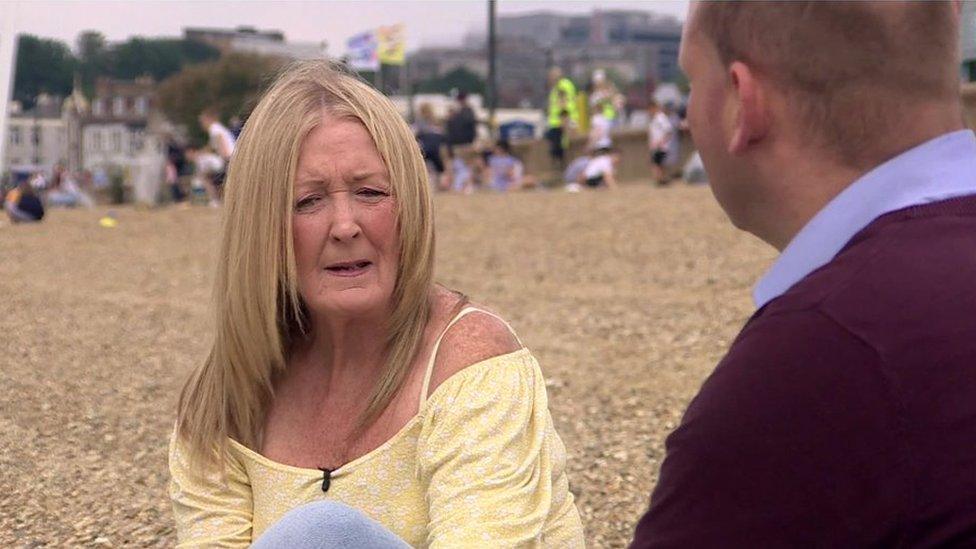Mental health crisis ends in cells for too many, snapshot suggests
- Published

Up to 4,500 people in mental health crisis were unlawfully held in police custody in England and Wales in a year, previously unpublished data suggests.
It happened because of a lack of hospital beds and police officers say the problem persists in some areas.
Ministers say they are clear "police cells should, in general, not be used as places of safety".
The estimated figures, obtained by BBC under Freedom of Information law, were in a report given to ministers in 2018.
The report was commissioned by Theresa May's government.
Much of the information in it has been redacted from the version given to the BBC, including details of the methodology.
However, it indicates that the estimate is based on data from seven out of the 43 police forces in England and Wales, over a period of two weeks.
These figures therefore only give a snapshot of the scale of a problem where little data exists in the public domain.

'It nearly broke me'
Annette Marshall's 15-year-old son Thomas twice attempted to take her life - but she insists he's not a killer or a criminal, but was undergoing an acute mental health crisis.

Annette Marshall
She called the police after he put a pillow over her face while she was in bed.
"I managed to push him away and I asked him why he was doing this to me."
He told her: "If I kill you now, I won't experience the pain of you dying when I grow up."
Annette said her "heart sank" when Thomas was arrested and said she had not wanted the police to do that.
At Southend police station the next day Thomas was identified as needing hospital admission - but he was only found a suitable bed three-and-a-half days after his arrest.
Essex police say that Thomas was bailed and, following his release from custody, they supported him in a safe environment. They then worked with local health and social care services to find the best place for him to receive the appropriate care.
Southend NHS Clinical Commissioning Group has apologised for the "situation Thomas was put in", promising that a safeguarding review, already underway will ensure improvements.

'An ongoing issue'
The BBC understands that unlawful detentions, which occur when police powers to detain someone under criminal law end but a bed cannot be found, are still happening in some areas.
By law, people in mental health crisis who have been arrested should usually be detained, using powers under the Mental Health Act, in health-based places of safety, such as hospitals, rather than police cell.
However, a recently-retired chief constable said police have had to hold people unlawfully, as a last resort, to protect them and the public.
The 2018 research cited concerns that poor mental health puts "significant pressure" on the criminal justice system, with police spending an increasing amount of time responding to "mental health-related incidents".
Chief Constable Mark Collins was the mental health lead at the National Police Chiefs' Council in 2018, and had himself raised concerns.
Mr Collins told the BBC: "No-one wants to make a decision to keep someone in a police cell unlawfully.
"You're damned if you do, you're damned if you don't, because you've got someone who's deemed to be mentally ill, needing support and you know you could just release that person and who knows what would happen.
"As a caring police service we would want to keep that person and hand them over to mental health facilities, to give them the proper support and care that they need."
Bed shortages
The report highlighted the major causes of these delays as shortages of:
mental health beds
mental health professionals to make assessments
It also identified significant differences between areas, with some transferring individuals to health-based places of safety to wait for a bed, while similar cases could lead to individuals spending hours waiting in custody.
It also said that "this is further confused" by changes to the Mental Health Act in 2017, which restricted the use of police stations as a place of safety (where adults can be detained until a bed becomes available).
Serving police officers, speaking anonymously to the BBC, have confirmed that differences regarding approaches to detentions still remain.
Others say the number of unlawful detentions in 2021 is likely to have been significantly reduced.
The BBC understands that some forces have ended unlawful detention completely, whereas others have not, saying they have no choice but to act unlawfully.
There are no available figures on these continuing cases because data is not systematically collected.
A government spokesperson said: "It is vital people with mental health needs and those in crisis are able to access support when they need it, and we are absolutely committed to supporting this by expanding services and providing record funding.
"We are clear police cells should, in general, not be used as places of safety when someone is having a mental health crisis, and amended the Mental Health Act in 2017 to reflect this.
"In January, the government also proposed a series of reforms to the Mental Health Act to ensure patients receive the care they need in the most appropriate settings."